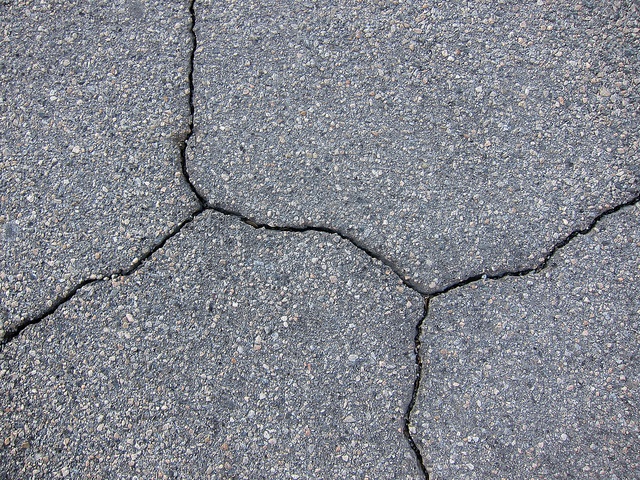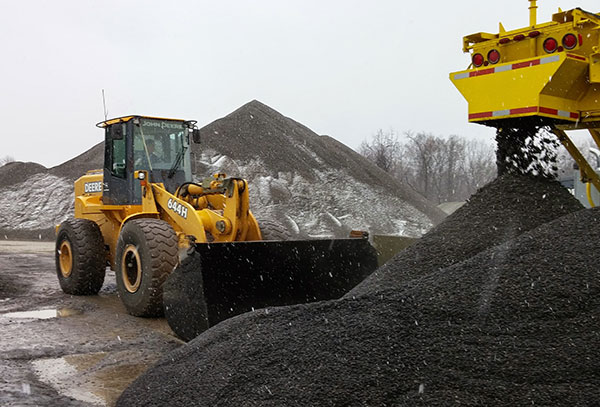Cold Mix Asphalt: Changing the Method We Construct Roads
As the infrastructure sector proceeds to progress, the usage of cold mix asphalt offers an encouraging change in road building methods. The ingenious residential or commercial properties of cold mix asphalt are difficult typical road-building practices, paving the way for improved performance and durability.
Benefits of Cold Mix Asphalt
What advantages does cool mix asphalt deal over standard warm mix asphalt in road building and construction tasks? Cold mix asphalt supplies several advantages that make it a preferred selection in certain situations. One crucial benefit is its capacity to be used in all weather, unlike hot mix asphalt which calls for details temperature conditions for laying and blending. This adaptability permits year-round building, lowering task timelines and costs related to weather hold-ups.
In addition, chilly mix asphalt can be stockpiled for future use, offering ease and price financial savings for upkeep projects. Its convenience of application, requiring no specialized tools or home heating, makes it excellent for quick repair services and patching. Furthermore, cold mix asphalt is much more ecologically pleasant as it calls for less energy for production and releases reduced degrees of greenhouse gases contrasted to hot mix asphalt. These advantages integrated make chilly mix asphalt a functional and efficient selection for numerous roadway building jobs.

Environmental Advantages
Cold mix asphalt's environmental advantages contribute significantly to its charm as a lasting choice for roadway building jobs. Among the crucial ecological advantages of cool mix asphalt is its lower carbon footprint contrasted to warm mix asphalt. The manufacturing process of cool mix asphalt needs less energy given that it can be made and applied at lower temperatures, minimizing greenhouse gas discharges. Additionally, chilly mix asphalt is typically used recycled products such as redeemed asphalt pavement (RAP) and recycled asphalt roof shingles (RAS), more lowering the need for brand-new basic materials and drawing away waste from landfills.
Moreover, the use of cool mix asphalt can bring about decreased power usage during building due to its capacity to be applied using standard devices without the demand for extra home heating procedures. This not just lowers fuel consumption but likewise lessens air pollution and boosts air high quality in the surrounding locations. By choosing chilly mix asphalt for road projects, building and construction companies can make a favorable effect on the atmosphere while still making certain resilient and premium roadway surface areas.
Versatility in Climate Condition
In roadway construction jobs, the convenience of cool mix asphalt in different weather conditions enhances its usefulness and performance. Unlike warm mix asphalt, which needs high temperatures during blending and installation, chilly mix asphalt can be used in a wide variety of weather. Asphalt Repair. This flexibility makes it a valuable alternative for road building in regions with extreme temperature levels or unforeseeable weather patterns
Cold mix asphalt remains workable even in chilly weather, enabling building and construction tasks to continue during cold weather when hot mix asphalt may not be a possible choice. Its ability to cure and establish without the requirement for heats makes sure that road maintenance and repairs can be executed year-round, reducing interruptions to web traffic circulation and reducing general task timelines.
Additionally, cool mix asphalt's durability to wetness makes it appropriate for locations vulnerable to constant rainfall or high moisture. Its adaptability and sturdiness enable it to hold up against expansion and tightening caused by temperature level changes, adding to longer-lasting roadways that require less repairs gradually. In general, the flexibility of cold mix asphalt in different weather makes it a dependable choice my company for effective and sustainable roadway building and construction jobs.

Cost-Effectiveness and Sustainability
Taking into consideration the financial and ecological effects of roadway construction products, how does the cost-effectiveness and sustainability of cool mix asphalt contrast to conventional alternatives? Cold mix asphalt supplies a compelling economical and sustainable option for roadway construction. In terms of cost-effectiveness, cold mix asphalt typically requires reduced production temperatures, reducing power intake and manufacturing expenses contrasted to hot mix asphalt. The capability to be stockpiled for extended periods without solidifying additionally lessens waste and permits for simpler maintenance and fixings, leading to general expense savings. Additionally, using chilly mix asphalt can lead to lowered transportation prices because of its longer life span and the opportunity of being produced on-site.
From a sustainability viewpoint, chilly mix asphalt offers several ecological advantages. Its reduced production temperature levels lead to reduced greenhouse gas emissions and power usage, aligning with efforts to reduce climate modification. The capacity to reuse existing materials into cool mix asphalt adds to a circular economic situation approach, minimizing the demand for virgin materials and reducing total ecological impact. Generally, the cost-effectiveness and sustainability of cold mix asphalt make it an appealing option to conventional roadway building materials.
Effect on Roadway Durability
Roadway toughness considerably influences the long-lasting efficiency and maintenance demands of asphalt pavements. Cold mix asphalt, with its special characteristics, has a remarkable influence on road durability. One essential aspect is the ability of cool mix asphalt to stand up to temperature fluctuations without jeopardizing its architectural honesty. This flexibility helps the sidewalk to withstand breaking and rutting created by altering weather conditions, causing a longer solution life for the road.
Additionally, the cold mix asphalt's improved resistance to dampness damages plays a critical function in maintaining road longevity. Conventional warm mix asphalt is a lot more vulnerable to dampness infiltration, which can deteriorate the sidewalk framework with time. On the other hand, cool mix asphalt's composition enables it to better stand up to water infiltration, reducing the possibility of potholes and other forms of damage.
Conclusion
Finally, cool mix asphalt provides a multitude of advantages for road construction, consisting of ecological advantages, versatility in weather, cost-effectiveness, and enhanced roadway durability. Its ability to be made use of year-round and its lasting techniques make it a transformative choice for creating roads that are both long lasting and eco-friendly. With its cutting-edge approach and long-lasting results, cold mix asphalt is reinventing the means we build roadways for an extra sustainable future.
What benefits does cool mix asphalt deal over conventional warm mix asphalt in road building internet and construction jobs? Furthermore, cold mix asphalt is a lot more ecologically friendly as it needs much less energy for production and releases reduced degrees of greenhouse gases compared to warm mix asphalt. Asphalt Repair. Additionally, chilly mix asphalt is frequently made making use of recycled materials such as reclaimed asphalt pavement (RAP) and recycled asphalt roof shingles (RAS), further reducing the need for new raw materials and diverting waste from land fills
Unlike hot mix asphalt, which calls for high temperatures throughout mixing and installment, cold mix asphalt can be made use of in a large range of try this web-site climate conditions. In terms of cost-effectiveness, chilly mix asphalt typically needs lower production temperature levels, decreasing power consumption and manufacturing expenses contrasted to hot mix asphalt.